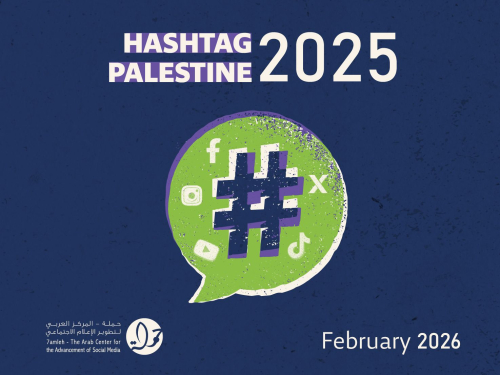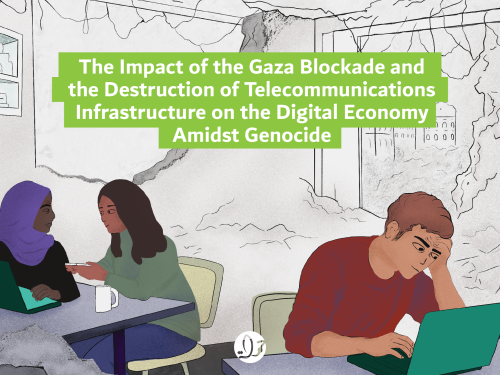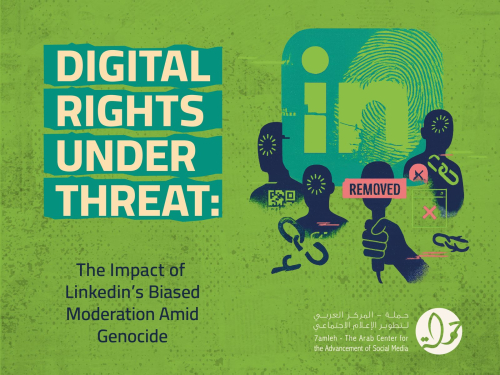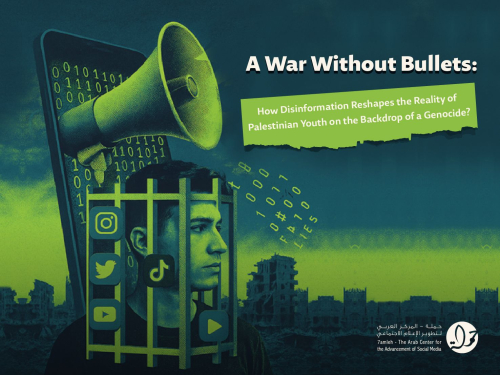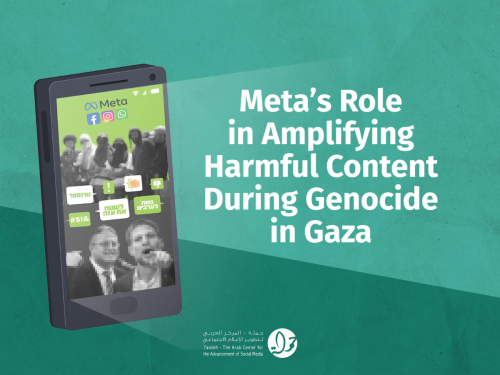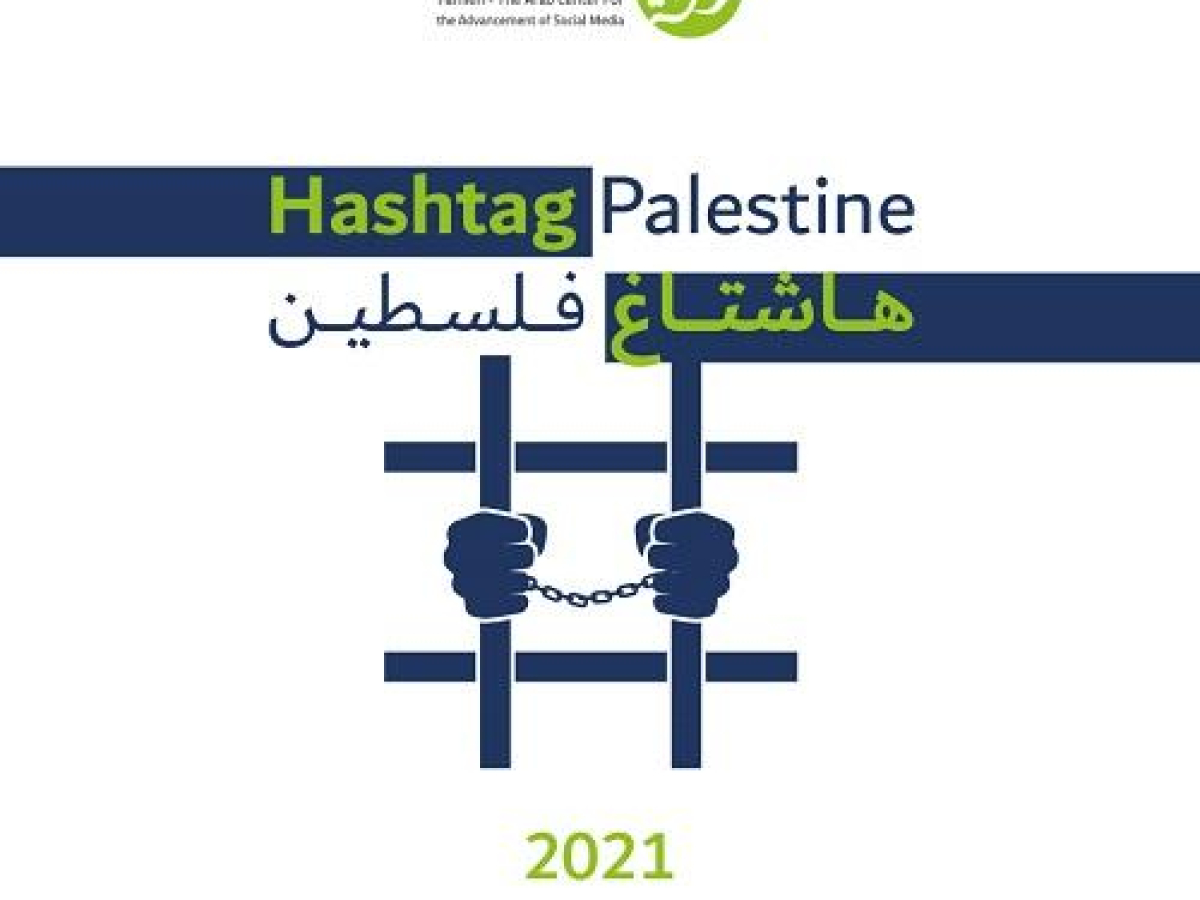
1033 violations of Palestinian digital rights on social media platforms
Development and use of surveillance and spyware technologies by Israeli authorities against Palestinians
The Palestinian Authority and De-Facto Government (Gaza Strip): Use of technlogies to hack the mobile phones of Palestinian citizens
7amleh - the Arab Center for the Advancement of Social Media released on Tuesday, 11 January 2022, its seventh annual report “Hashtag Palestine,” illuminating the digital rights violations of Palestinians and pro-Palestinian advocates online, at the hands of the three authorities as well as different social media companies in relation to the escalations and developments on the ground.
The report, in its seventh edition, shows the continuation and escalation in Israeli violations of Palestinian digital rights. According to the report, use of surveillance technologies significantly increased, evident in the proposal of an Israeli law to allow the use of facial-recognition cameras in public spaces. Similarly, a former Israeli officer revealed organised efforts to spy on Palestinian phone calls, indicating the Israeli authorities’ ability to access all calls conducted between Palestinians. Furthermore, the Israeli manufactured “Pegasus” spyware, developed by the Israeli “NSO Group,” was identified on the phones of 6 Palestinian human rights defenders and workers in Palestinian rights organisations and Ministry of Foreign Affairs.
Additionally, in line with the Israeli authorities’ efforts to restrict Palestinian content online, the Israeli Ministerial Committee for Legislation recently approved the first draft of the “Facebook Law,” which would allow the Israeli Public Prosecution to refer to the Israeli courts to issue binding decisions to remove any content online, which would have serious repercussions on Palestinian digital rights.
As for Israeli incitement online, the “Hashtag Palestine 2021” report illustrates the continuation of Israeli incitement, both official and unofficial, against Palestinians in the media and on social media platforms. According to the “Index of Racism and Incitement” issued by 7amleh in June, incitement in Hebrew against Arabs and Palestinians increased by 15 times during the aggression on the Gaza Strip and the events of May 2021, compared to the same period in 2020.
Regarding the Palestinian Authority and De-Facto Authority of the Gaza Strip (Hamas), violations came as part of a larger assault on the right to freedom of opinion and expression. The report presents cases of arbitrary detention, summonses on the basis of political activity, and even smear and extortion campaigns on similar grounds. The situation also remains critical in the occupied territory regarding privacy and data protection, as the above authorities continue to infringe the privacy of users, especially in the absence of legislation enshrining the right to privacy and data protection, and in light of the Israeli authorities’ control over the information communication technology (ICT) infrastructure in the occupied Palestinian Territory.
At the level of technology companies, the events of May 2021 perhaps best highlighted the extent of censorship of Palestinian human rights and political content, as well as critiques of Israeli violations against the Palestinians. Social media platforms increased censorship of Palestinian content, and in less than two weeks, deleted, suspended and restricted hundreds of posts related to Palestine. 7amleh documented more than 1,000 violations across different platforms, with Facebook and Instagram atop the list of the most violating platforms, the report said. 7amleh also reported that Twitter and Tik Tok were more responsive to reports of violations by the center than Meta.
In addition to all of the above restrictions and limitations on Palestinian digital rights at the hands of the three authorities and technology companies, Palestinians further face internal societal challenges such as hate speech and misleading news, impacting their activity in the digital space and digital participation.
Related Articles
Subscribe to Our Email Alerts
And stay updated with our latest activities, news, and publications!

